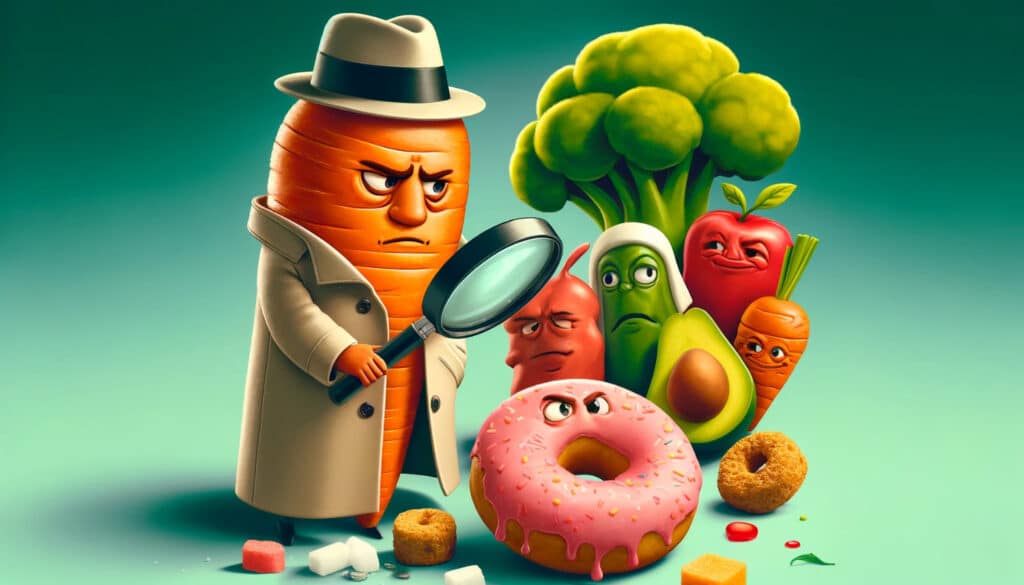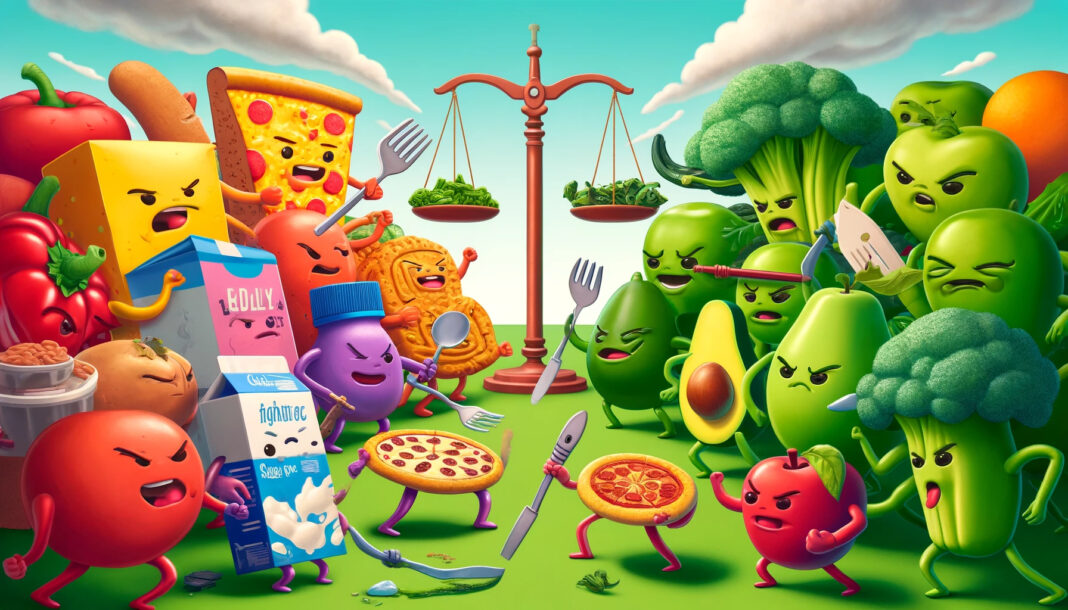Introduction
Are ultra processed foods really the villains of our diet? Discover the truth in this hilarious yet informative guide to diet quality vs. ultra processed foods. Get expert tips on how to embrace nutrient-dense options while still savoring your guilty pleasures. Balance is key, so grab a fork and dive into this delectable article!
Alright, let’s dive into this sticky situation with ultra processed foods (UPFs). In today’s food landscape, you’re either munching on kale chips or downing a bowl of rainbow marshmallow cereal. But the burning question is: Should we be focusing more on overall diet quality than how much ultra processed stuff we’re stuffing into our faces? Well, buckle up, buttercup, because we’re about to uncover the truth!

Why Ultra Processed Foods Get a Bad Rap
Defining Ultra Processed Foods
Let’s clear this up first: What exactly are ultra processed foods? Think of them as the superhero villains in the food world. They’re those packaged, ready-to-eat, industrially-made munchies like sugary cereals, frozen dinners, and snacks with a shelf life longer than a Galápagos tortoise. They’re packed with artificial additives, preservatives, and flavor enhancers that make your taste buds sing but your health grumble.
Understanding the Harmful Effects
Here’s why the experts wag their fingers at these foods: Obesity, Type 2 diabetes, cardiovascular diseases, and an array of other unwelcome health problems. Ultra processed foods are high in added sugars, unhealthy fats, and sodium while being low in essential nutrients. They’re like that one friend who’s fun at parties but leaves you with a raging hangover.
But Wait, There’s More! Hidden Sugars, Salts, and Fats
Ultra processed foods are sneaky, hiding sugars, salts, and fats under a heap of euphemistic ingredient names. “Natural flavors” and “hydrolyzed proteins,” anyone? That granola bar may look healthy, but it’s got enough sugar to make Willy Wonka blush.
The Quality Factor: Diet Quality vs. Ultra Processed Foods
What’s This “Diet Quality” Everyone’s Talking About?
Diet quality isn’t about that one salad you ate two weeks ago. It’s a comprehensive measure of how well your diet aligns with recommended guidelines like the Mediterranean Diet, DASH Diet, or even your grandma’s “Eat your veggies!” rule. A high-quality diet is one rich in whole, minimally processed foods, packed with fruits, veggies, whole grains, lean proteins, and healthy fats.
Research Insights: It’s Not All Doom and Gloom
According to a recent study published in JAMA Network Open, overall diet quality might outweigh the amount of ultra processed food you consume. If you’re balancing your ultra processed foods with plenty of nutrient-dense whole foods, your health scorecard may still be looking good. So, relax – that occasional bag of chips or frozen pizza isn’t an instant death sentence.
Balancing Your Plate With More Nutrient-Dense Choices
Think of your plate like a pie chart (mmm… pie). Ultra processed foods shouldn’t hog the whole thing. Instead, prioritize nutrient-dense options. Half your plate should be colorful fruits and veggies, one quarter lean proteins, and one quarter whole grains. Add a dollop of healthy fats, and you’re golden!
What’s This “Diet Quality” Everyone’s Talking About?
Tip #1: Embrace the Rainbow
No, not that sugary cereal rainbow. Fill your plate with colorful produce – each hue brings unique vitamins and antioxidants to the party. Red tomatoes, orange carrots, green spinach, purple eggplant – you name it! The more vibrant, the better.
Tip #2: Fiber is Your Friend
Fiber keeps your gut happy and keeps you feeling full. Load up on fruits, veggies, legumes, and whole grains to keep things moving smoothly. Oats, lentils, and berries? Yes, please!
Tip #3: Lean Protein for a Leaner You
Lean protein sources like chicken, turkey, fish, and plant-based options like tofu or beans are great choices. They keep you full longer and help maintain those muscles. Bonus points if you grill or bake them instead of frying.
Tip #4: Healthy Fats, Not Fad Diets
Avocado toast might be a millennial meme, but avocados, nuts, seeds, and olive oil are fabulous sources of healthy fats. These fats boost brain health, keep your skin glowing, and can even help you lose weight. Avoid the ultra processed trans fats like the plague!
Tip #5: Whole Grains are the Real MVP
Swap out the refined carbs for whole grains like quinoa, brown rice, whole wheat bread, and oats. Whole grains are bursting with fiber, vitamins, and minerals. Plus, they’ll keep your energy levels steady and stable.
Tip #6: Hydration Station
Water is life, so don’t skimp on it. Instead of guzzling sugary drinks or energy drinks, aim for at least 8 cups of water a day. Bored of plain old water? Jazz it up with a splash of lemon, mint, or cucumber slices.
Making Peace With Your Plate: A Balanced Approach
Mindful Eating: Savor Every Bite
Slow down and savor each mouthful. Pay attention to the flavors, textures, and how your body feels. Mindful eating helps prevent overeating and lets you truly enjoy your meal.
Moderation, Not Deprivation
Cutting out ultra processed foods entirely? That’s just setting yourself up for failure and a sudden craving for a midnight cheeseburger. Enjoy your favorite treats in moderation. One scoop of ice cream won’t derail your diet, but the whole pint might!
Conclusion
So, is diet quality more important than how much ultra processed food you eat? The evidence leans towards a big, resounding “yes!” It’s all about balance, my friend. Focus on adding more whole, nutrient-dense foods to your diet and enjoy your guilty pleasures in moderation. Life’s too short to stress about that donut!








